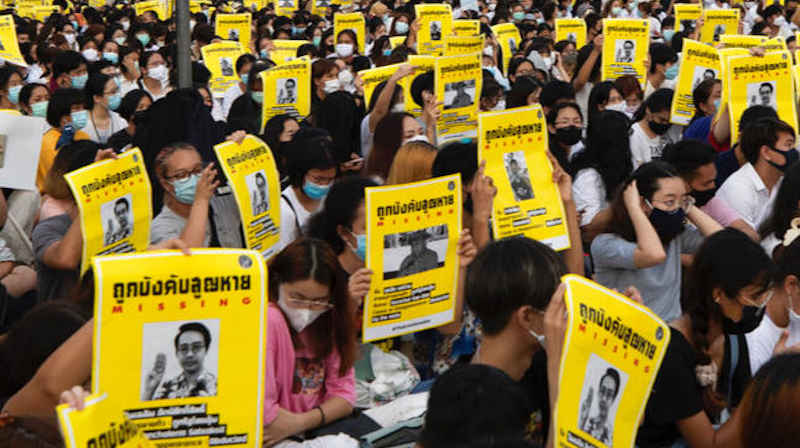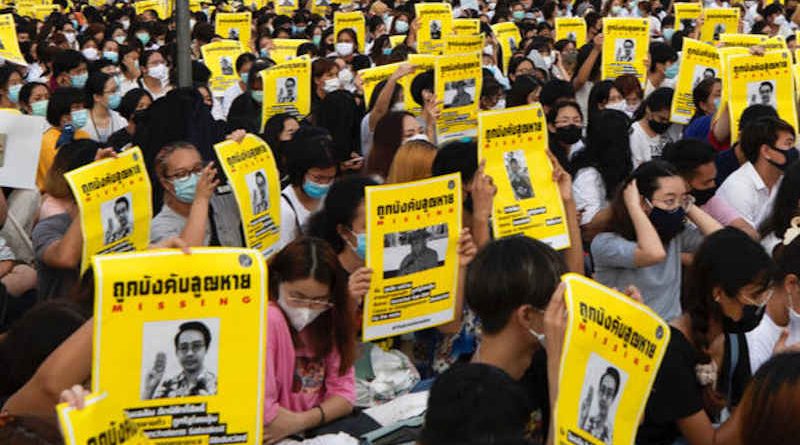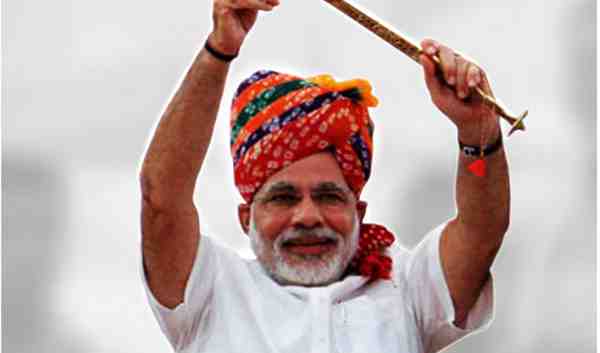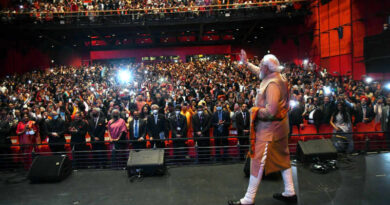Pro-Democracy Thai Protesters Face Police Action for Insulting the Monarchy

Thousands of Thai protesters continue to defy a government diktat that bans demonstrations against the despotic regime.
By RMN News Service
Five pro-democracy leaders are facing accusations of lese majeste — a draconian law that prohibits criticism of Thailand’s royal family. It is the first time in over two years that the law has been used against the citizens who have been protesting against the military-backed government for the past 5 months.
The protest leaders facing lese majeste charges met the police authorities Monday (November 30), as the Thai government has gone restless over the continuing protests in the Southeast Asian nation.
According to a CNN report, the five activists are human rights lawyer Arnon Nampa, who called for reform of the monarchy; Panusaya Sithijirawattanakul, who read out 10-point list of demands for monarchy reform; and others including Parit Chiwarak, Panupong Jadnok, and Patiwat Saraiya.
Their lawyer Noraset Nanongtoom – a member of Thai Lawyers for Human Rights (TLHR) group – says that the five protesters appeared before the police in response to allegations that they have violated the lese majeste law while they were expressing their views.
In addition, three others – Tattep Ruangprakitseri, Patsaravalee Tanakitvibulpon, and Jutathip Sirikhan – have also been summoned on lese majeste charges and required to report to police by December 7.
The demonstrators are facing the lese majeste accusations, as they have challenged King Maha Vajiralongkorn’s personal control over some army units. Protesters, according to CNN, also gathered around the Siam Commercial Bank headquarters in Bangkok in November, to rally against the transfer of royal assets into Vajiralongkorn’s personal account.
Thousands of Thai protesters continue to defy a government diktat that bans demonstrations against the despotic regime. Although the government has banned assembly of five or more people and the publication of news and online information that could threaten national security, the protesters pledge that they will hold daily demonstrations against the callous Thai government.
[ Also Visit – Rural Resistance: Protests by Farmers in India ]
Protesters are holding anti-government rallies in the Thai capital, Bangkok, to demand an end to dictatorship in Thailand. The peaceful protesters, who are being threatened by government-backed police and security forces, openly challenge the monarchy of Thai King Maha Vajiralongkorn and demand reforms to curb his powers.
In a series of protests – mostly led by students – the demonstrations have been asking the government to dissolve the parliament and draft a new constitution in which the country’s monarchy has limited role in politics. They also demand that the monarchy should be brought under the constitution.
Although it is a serious crime under Thai law to challenge the royal family, the protesters – who are also holding protests in other parts of the world – demand reformation of the monarchy, which should be prohibited from expressing political opinions in public.
It is said that the protest in August at Bangkok’s Democracy Monument was one of the biggest anti-government demonstrations since Prime Minister Prayuth Chan-ocha took power in a 2014 coup.
The protesters waved banners and chanted: “Down with dictatorship, long live democracy” slogans. They are demanding that Mr Prayuth – a former general who won disputed elections last year – stand down.
Since the coup on May 22, 2014, Thai people have been forced to live under the control of junta government (military dictatorship), which has been exercising extreme and incontestable state power to silence and control the citizens. “We refuse to tolerate the cruelty and incompetence of the rulers any longer,” asserts a Thai freedom group.
With a list of demands, the group warns that if the government did not accept its demands, it will intensify its protests, which are expected to receive wider support from the citizens despite the government’s coercive actions against the dissenters.
While Mr Prayuth says the majority of Thais do not support the protests, a few supporters of the monarchy have also staged simultaneous rallies.
Meanwhile, Thailand’s constitutional court ruled on Wednesday (December 2) that Prime Minister Prayuth was “not guilty” of a conflict of interest for staying in an army residence after retiring. It means Mr Prayuth will continue to stay in power.
According to Reuters, opposition parliamentarians had filed a petition that it constituted a conflict of interest for Mr Prayuth to have remained in military housing after his retirement from the army in 2014. However, Mr Prayuth argues that he needs to stay in the military house for security reasons.






